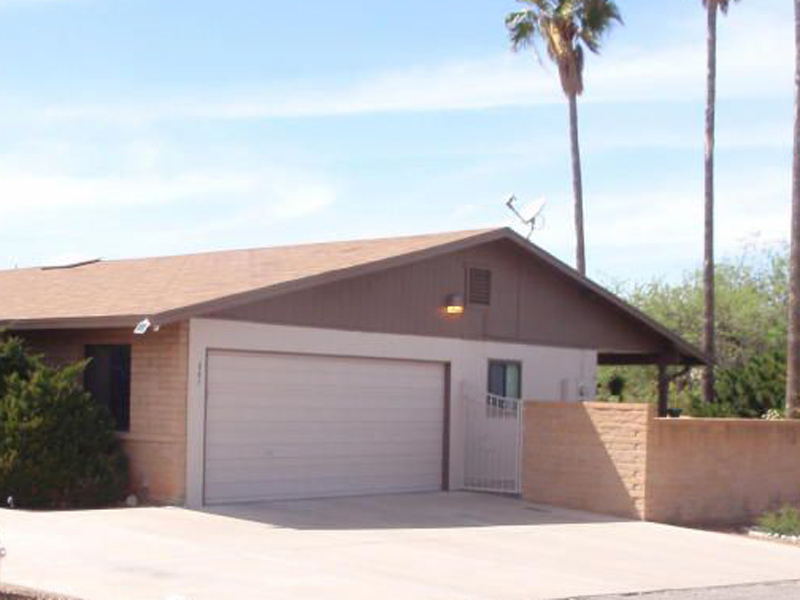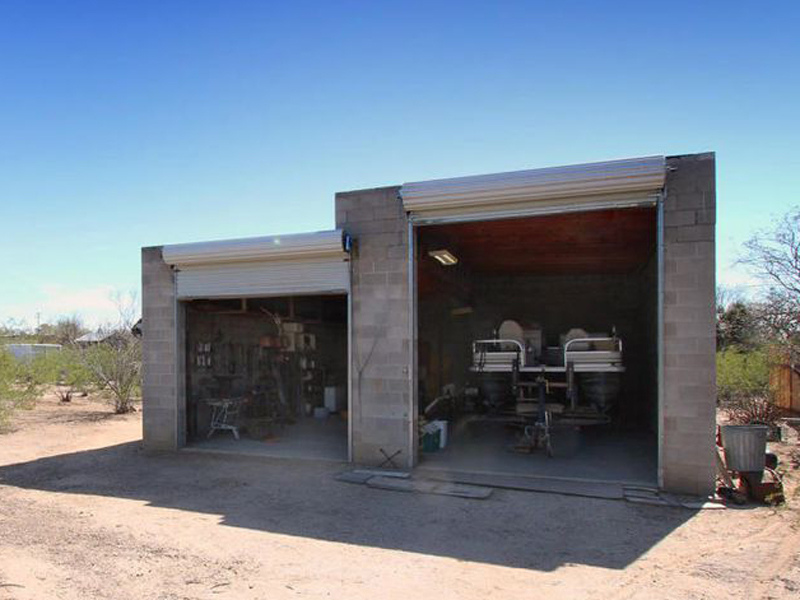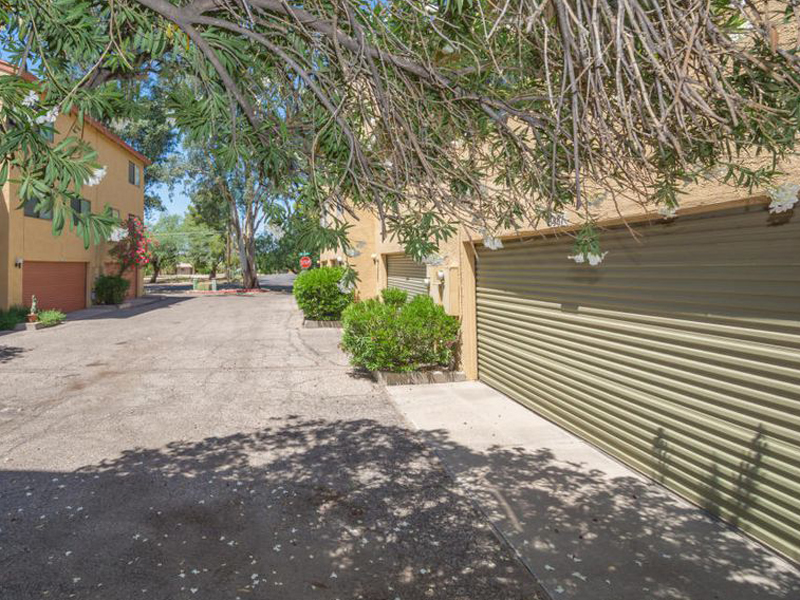Is Your Garage Door Stuck? Below's What to Do Very first
When your garage door will not open up, begin with these essential security checks before attempting any type of repair services. First, guarantee no person is standing near the door which cars are clear of the opening. Seek apparent indicators of damages like damaged panels, curved tracks, or hanging cords. If you see a snapped springtime or severely harmed elements, stop promptly and call a specialist—-- these repairs call for customized devices and proficiency to manage safely.

Examine These 6 Points Prior To Calling a Professional
Before presuming you require costly repair services, go through this quick analysis list that resolves most garage door issues:
-
Power source: Confirm the opener is connected in and the outlet is working
-
Remote batteries: Change dead batteries in your remote control
-
Manual lock: Check if someone inadvertently engaged the hand-operated lock
-
Obstructions: Try to find particles obstructing the door's path or sensors
-
Emergency launch: Guarantee the red emergency cord hasn't been pulled
-
Circuit breaker: Confirm the garage circuit hasn't stumbled
These simple checks deal with about 70% of garage door problems without requiring expert intervention.
10 Common Reasons Your Garage Door Won't Open
Comprehending why your garage door opener isn't working assists you pick the ideal solution. Right here are one of the most constant causes home owners experience:
Dead remote batteries stand for the easiest repair—-- when batteries pass away, the remote can not send out signals to the opener. Power blackouts or tripped breakers reduced electrical energy to the motor. Damaged springtimes stop the door from raising correctly and require immediate specialist focus. Sensing unit misalignment causes safety systems to block door operation. Track blockages quit rollers from relocating smoothly. Motor overload triggers automatic shutoffs when the opener spots resistance. Limit button troubles perplex the opener concerning door placement. Cord damage interrupts the lifting mechanism. Weather-related issues affect door motion during extreme temperatures. Component wear from age progressively reduces system performance.
Problem # 1: Dead Push-button Control Batteries
When your wall surface button functions yet your remote does not, dead batteries are typically the wrongdoer. Many garage door remotes make use of either 3-volt lithium or 12-volt alkaline batteries. Remove the back cover of your remote and inspect the battery kind. Replace with fresh batteries and examine the remote. If it still does not function, you might require to reprogram it to your opener. Consult your opener's manual for particular reprogramming directions, as the procedure varies by producer.
Trouble # 2: Power Supply Issues
Garage door power issues frequently stem from loose connections or stumbled circuits. Check that the opener is securely plugged into its electrical outlet—-- resonance can loosen links in time. Check the electrical outlet with one more tool to verify it's working. Analyze your home's breaker box for tripped circuits, especially if you have actually experienced storms or power changes. GFCI electrical outlets might have tripped and require resetting. If the opener has power but will not react, the issue likely lies elsewhere in the system.
Problem # 3: Broken or Damaged Springs
Broken garage door springtimes are among the most unsafe components to handle. If you listen to a loud bang from your garage or notice the door really feels exceptionally hefty when trying to raise by hand, a spring has most likely snapped. Torsion springs run flat above the door, while extension springs sit on either side. Never ever try springtime repairs yourself—-- these elements store significant tension that can cause serious injury or death. Expert replacement usually sets you back $150-$300 yet ensures your safety and security.
Problem # 4: Obstructed Safety Sensors
Modern garage doors include security sensors that avoid closure when objects are spotted. These sensors can quit the door from opening if they're dirty, misaligned, or blocked by debris. Tidy sensor lenses with a soft towel and ensure absolutely nothing blocks the unnoticeable beam of light between them. Examine that sensors are correctly straightened—-- a lot of have indicator lights that show connection status. Sensor troubles typically fix with straightforward cleaning and change.
Trouble # 5: Track Obstructions or Damage
Garage door tracks overview rollers as the door goes up and down. Dust, particles, old grease, or little items can jam the system. Check tracks visually and eliminate any type of blockages with a brush or cloth. Look for dents, flexes, or bending that might restrain smooth operation. Minor track modifications are feasible for helpful house owners, yet substantial damages calls for specialist fixing to stop further issues or safety dangers.
Issue # 6: Garage Door Opener Electric Motor Issues
When the garage door motor runs however the door doesn't move, numerous issues could be responsible. The electric motor might be overloaded and turning off as a safety measure. Gear wear, particularly in older units, can avoid correct procedure. Chain or belt drive problems influence power transmission. If you listen to unusual grinding, clicking, or humming audios, quit utilizing the opener promptly. Motor repair work frequently set you back more than replacement, particularly for systems over ten years old.
Detailed Do It Yourself Troubleshooting Guide
Follow this systematic approach to garage door repairing while focusing on security throughout the process:
Action 1: Evaluate the wall switch first. If it functions yet the remote does not, focus on remote concerns. If neither works, inspect power supply.
Action 2: Analyze the manual release cord. If it's been pulled, the opener is disengaged from the door. Press the trolley back to reconnect.
Action 3: Manually examine the door by disengaging the opener and trying to lift the door by hand. It should move smoothly and remain in place when half-open.
Step 4: Inspect visible components for damages, paying unique interest to springs, cables, and tracks.
Tip 5: Examine all security features including sensing units, limitation buttons, and auto-reverse functions.
Step 6: Test various controls (remote, wall button, keypad) to separate the problem source.
Constantly use shatterproof glass and work handwear covers when executing examinations, and never effort fixings on springtimes or high-tension components.
When to Call an Expert vs. DIY Solutions

Knowing when to call a garage door expert versus attempting do it yourself repair work protects both your safety and your pocketbook. Take care of these issues on your own: dead remote batteries, power supply troubles, small track cleansing, sensor cleansing and placement, and standard lubrication.
Never ever attempt these fixings yourself: spring substitute or adjustment, cable television repair work, significant track realignment, electrical wiring issues, opener electric motor substitute, or any kind of repair service including high-tension parts. Specialist technicians have specialized devices, training, and insurance policy to take care of harmful repairs securely.
Consider repair service expenses versus replacement prices, particularly for doors over 15 years old. Modern garage doors provide much better safety and security features, energy effectiveness, and integrity than older versions.
Emergency Situation Garage Door Solutions
When you're stuck to a garage door that will not open and need prompt gain access to, adhere to these emergency situation treatments:
Manual Procedure: Pull the red emergency situation release cable to disengage the opener. This allows hands-on procedure but calls for proper strategy to prevent injury. Raise the door gradually and equally, making use of leg muscular tissues as opposed to your back. A lot of domestic doors weigh 100-150 pounds, making them manageable for the majority of grownups.
Short-lived Repairs: If the door opens manually yet won't keep up, prop it open with sawhorses or clamps—-- never use your body or lorries as supports. For doors that won't shut completely, make certain the opening is secured if you must leave.
Emergency situation Service: Many garage door companies provide 24/7 emergency service for do insulated garage doors require less maintenance situations entailing safety and security issues, trapped automobiles, or complete system failings. While extra expensive than routine solution telephone calls, emergency repair work give instant options when required most.
Security Warning: What NOT to Do
Garage door safety needs understanding unsafe repair services that must never be tried by property owners:
Never try to repair springs—-- they keep sufficient power to trigger deadly injuries when they snap or are poorly taken care of. Do not require a stuck door—-- this can harm the opener, tracks, or door panels, producing extra expensive troubles. Stay clear of bypassing safety and security attributes—-- sensors and auto-reverse systems prevent serious injuries and building damages.
Don't disregard weird noises—-- grinding, scraping, or banging audios suggest issues that get worse over time. Never make use of the door if cords are frayed or broken—-- the door might fall all of a sudden. Don't try electrical repairs unless you're a qualified electrical expert—-- garage door openers use both 120V family present and low-voltage control circuits.

Preventive Maintenance to Prevent Future Troubles
Normal garage door maintenance stops most typical issues and expands system life-span dramatically:
Month-to-month Tasks: Aesthetic examination of all parts, testing auto-reverse safety functions, inspecting and tightening up hardware, and cleansing tracks and sensing units.
Quarterly Tasks: Oiling all moving get rid of appropriate garage door lubricant, screening guidebook operation, and inspecting weather condition sealing.
Yearly Tasks: Professional evaluation and tune-up, spring adjustment if required, and opener maintenance including belt or chain modification.
Seasonal Jobs: Planning for weather extremes, inspecting insulation, and changing opener settings for temperature adjustments.
Constant maintenance costs far less than emergency repairs and ensures reputable procedure year-round.
Garage Door Will Not Open Up Frequently Asked Questions
Why won't my garage door open with the remote but works with the wall switch?
This generally suggests dead remote batteries, signal disturbance, or the requirement to reprogram the remote. Check batteries initially, then consult your opener guidebook for reprogramming guidelines.
Can I by hand open my garage door if the power is out?
Yes, pull the red emergency situation release cable to disengage the opener, then lift the door by hand. Be prepared for the door's full weight and lift with proper technique to prevent injury.
Just how do I understand if my garage door spring is broken?
Signs consist of a loud bang from the garage, the door sensation exceptionally hefty when lifting manually, noticeable voids in the springtime coils, or the door only opening up a few inches before quiting.
Is it secure to utilize my garage door if it will not open all the way?
No, partial operation shows mechanical troubles that might aggravate unexpectedly. Quit using the door and have it inspected by a professional to avoid additional damage or injury.
What should I do if my garage door opens however won't shut?
Examine security sensors for obstructions or misalignment, analyze the tracks for debris, and test the auto-reverse feature. If these do not resolve the problem, speak with an expert.
How much does it set you back to take care of a garage door that will not open up?
Costs differ extensively depending on the trouble: battery replacement ($5-$10), expert medical diagnosis ($50-$100), springtime replacement ($150-$300), or opener substitute ($200-$500).
Can weather impact my garage door's ability to open?
Yes, extreme cold can enlarge lubricating substances and impact metal parts, while warmth can create development problems. Most issues fix as temperature levels normalize, however consistent issues may require expert focus.
Why does my garage door open a couple of inches after that quit?
This typically shows busted springs, limitation switch issues, or track obstructions. The opener's safety features quit operation when resistance is discovered, preventing damage to the electric motor or door.
Obtain Specialist Help for Complex Problems
When do it yourself fixing does not solve your garage door issues, professional technicians offer the proficiency and devices needed for risk-free, long-term fixings. Qualified professionals identify concerns precisely, make use of manufacturer-approved components, and provide service warranties on their job.
Specialist solutions include: detailed system examinations, spring and cable replacement, opener repair work and substitute, track placement and replacement, electric troubleshooting, and emergency situation solution phone calls.
What to anticipate: upfront prices, certified and insured technicians, same-day service for lots of repair services, and follow-up maintenance suggestions.
Many garage door business use free estimates for significant repair work and can offer instant solutions for immediate issues influencing home protection or automobile accessibility.
Getting Your Garage Door Working Again
A garage door that will not open does not need to spoil your day or damage your spending plan. Beginning with straightforward troubleshooting steps like checking power, changing batteries, and analyzing for noticeable obstructions. Several issues have fast do it yourself options that bring back typical procedure within minutes.
However, recognize when expert aid is needed—-- especially for spring-related problems, electric troubles, or complex mechanical failures. Trying harmful repair work on your own risks significant injury and typically produces extra costly troubles.
Normal upkeep avoids most garage door issues and ensures reliable operation for years to come. When issues do take place, resolve them quickly to prevent more pricey repairs and keep your home's protection and convenience. Whether you require a straightforward battery replacement or full system overhaul, remedies exist to get your garage door functioning efficiently once more.
Eddie's Garage Door Service
5505 N La Canada Dr, Tucson, AZ 85704
(520) 965-8259
www.EddiesGarageDoorService.com